Yates Account
Join now
Create a Yates account today!
Sign up to join the Yates Garden Club for monthly e-mails packed with seasonal inspiration, tips for success & exclusive promotions.
Plus if you’re a Garden Club member you can take part in the Yates Growing Community - a blog to share successes, get advice & win prizes in fun challenges along the way!

Forgot password
Enter the email address associated with your account, and we'll email you a new password.

Top tips on annuals
One of the best ways to get quick colour into your garden is with flowering annuals. Modern forms of annual plants have been bred and selected for improved colour ranges, flower variation and disease resistance.
Soil and position
Soil should be well drained and have good structure (i.e. soil should be fluffy, with adequate balance between pore spaces and solid particles). Soil structure, nutrient and water-holding abilities can be improved by adding some old organic matter (mushroom compost, old manure, compost) to the soil before planting.
Most annuals prefer a sunny spot in the garden although a few will take a small amount of shade. The shade-tolerant list includes: bedding begonias, coleus, foxgloves, impatiens, honesty, primulas, polyanthus, cinerarias, violas, pansies.
Taller growing annuals should be planted in a position that is protected from strong winds.
Fertiliser and pH
Add some complete fertiliser (such as Yates Dynamic Lifter Organic Plant Food) to the soil before planting. Feed young annuals with a soluble or liquid fertiliser – Yates Thrive Natural Fish & Seaweed+ Plant Food Concentrate to encourage good plant development. Most annuals prefer a pH of about 6-6.5 (slightly acidic), but there are some, like sweet peas, dianthus and gypsophila which tolerate higher pH levels.
Planting Time
Planting time is critical. Planting either too early or too late will mean that annuals reach maturity when weather conditions are unsuitable. Another factor to consider is that many annuals flower in response to day length or changes in levels of light so must be grown to mature at the right time.
Garden and colour Planning
This is very much a matter of personal taste. Some gardeners prefer colour schemes that blend similar shades together. Others like to grow contrasting colours that ‘shout’ at each other. The best advice is to check flower colour before planting and adjust accordingly. It is also important to plan for the plant’s ultimate height. As a general rule, taller plants go to the back of a bed, but this may be varied for specific effects.
Seeds or Seedlings?
Again, this is a matter of personal choice. Seeds take longer and need more initial care, but are cheaper. Mixed packets of annual seeds can be sprinkled to grow an interesting, colourful, cottage garden effect.
Pests that affect flowering plants
Sap Suckers
Sap sucking insects are attracted to annuals because of their rapid growth. The most common pests are aphids and thrips. All sap sucking insects play an important part in spreading disease.
Control by hand, with frequent sprays of water, or by spraying with an appropriate insecticide. Modern garden insecticides, like Yates Nature's Way Organic Citrus, Vegie & Ornamental Spray Ready to Use, have low toxicity to mammals and control a range of sucking and chewing insects.
Chewing Insects
Chewing insects eat plant material. Some of the most common are caterpillars and earwigs. Control by hand or spray with Yates Nature's Way Organic Citrus, Vegie & Ornamental Spray Ready to Use
Diseases
The most common are fungal diseases (such as rust, powdery mildew and leaf spots) which can take many forms. Fungal diseases develop from spores, dust-like particles that land on plant material and germinate and grow when weather conditions are suitable. Try to avoid applying water to the foliage of susceptible plants and, if necessary, spray with an appropriate fungicide. Yates Rose Gun Spray Ready to Use will control a wide range of diseases on ornamentals.



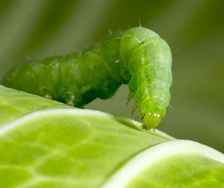
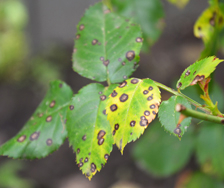
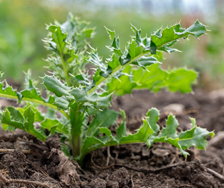
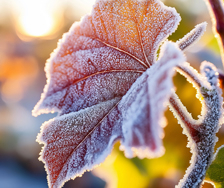
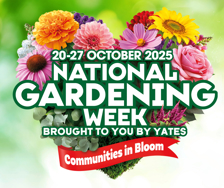









Share
Share this article on social media